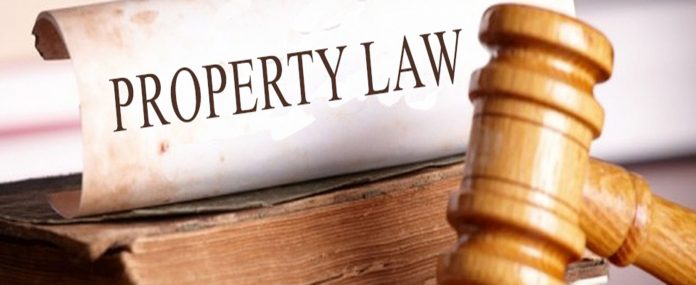This article is written by Kavana Rao from Symbiosis Law School, Noida. This article gives an insight into the new property law that Poland has introduced and how it affects the Polish citizens.
Table of Contents
Introduction
Poland is one of the countries which was invaded by Nazi Germany during World War II and the millions of Jews that the population comprised of were killed or persecuted. Their lands were seized by and nationalized by the communist authorities. Presently, Poland’s President has decided on signing the Bill that would put limits on the ability of Jews to recover property confiscated by the Nazi Germans. Up till now, Jewish expatriates or their descendants could claim that their property had been seized illegally and demand its return, but with the new law, this right will be restricted.
Background
Before World War II, Poland was sheltering Europe’s largest Jewish community of nearly 3.5 million. When Adolf Hitler marched towards Poland and invaded the land, disobeying the Treaty of Versailles, most of these Jews were killed and their properties were seized by the Nazis. A small number of Polish Jews who survived faced violence and persecution which compelled them to flee to other countries including the United States and Israel. Poland’s post-war communist authorities confiscated not only the properties of Jewish owners but also many non- Jewish owners in Warsaw and other cities.
When the communist government collapsed in 1989, it opened the possibility for claimants to regain their family properties. A few cases have been resolved in the courts and they have received their properties back but a large part of them still remain in uncertainty. This is primarily because since becoming a democracy in 1989, several Bills had been proposed in Poland to deal with the restitution of or compensation for, private property confiscated by the Nazis or later nationalized by the Communist regime but none became law. Poland is the only major country in the former Soviet bloc, and a member state of the European Union, without such a law.
The main reason for Poland to bring amendments in its property law is due to the criminal groups in the past years that have been taking advantage of and falsely claiming to be rightful owners and obtaining properties through fraud and later evicting tenants from the properties.
In 2015, Poland’s Constitutional Tribunal ruled that there should be a specific limitation period after which administrative decisions over property titles could not be challenged. While keeping in mind such a rule, changes to the law were adopted recently by the Polish government.
Terezin Declaration on holocaust era assets and related issues
The Terezin Declaration on Holocaust Era Assets and Related Issues is a legally non-binding document outlining several measures towards property restitution that belonged to the victims of Nazi persecution. The Declaration stated that there must be every effort made to rectify the consequences of the wrongful property seizures. The Declaration also outlined certain measures to ensure that the grievances of the victims are addressed.
Measures to ensure the grievances are addressed
- The welfare of Holocaust survivors and other victims of Nazi persecution- It called on signatories to the Declaration to address the social welfare needs such as hunger relief, medicines, and home care. In addition to this, it is also encouraged to take steps to overcome social isolation by encouraging intergenerational contact.
- Immovable property- It urged signatories to address the private property claims of Holocaust victims concerning the immovable property of former owners, heirs, or successors.
- Jewish cemeteries and burial sites- It urged the government authorities and civil society to identify and protect mass graves of victims of the Holocaust and ensure that the Jewish cemeteries are preserved and kept free from desecration.
- Nazi- confiscated and looted art- It is also urged the legal systems of the signatories to ensure that the Nazi confiscated and looted art are restored and recovered and the claims are resolved based on the facts and merits of the claims submitted by the parties.
- Education, remembrance, research and memorial sites- It urged all states to establish or support annual ceremonies of remembrance and commemoration, and to preserve memorials and sites of memories and martyrdom.
- Judica and Jewish cultural property- It urged support for efforts to identify and catalogue Judaica and Jewish cultural items. It urged the states to return them to their rightful owners and other appropriate individuals or institutions.
Although Poland was one of the 47 countries to sign the Terezin Declaration
The new law
Poland’s lower house of Parliament passed a Bill that set a 30-year deadline for Jews to recover the property that the Nazi Germans seized from them during the Second World War. This Bill would prevent Polish property owners which include the Holocaust survivors and their descendants from regaining the property that was confiscated from them during the country’s communist regime. This law was also introduced to abide by Poland’s Constitutional Tribunal which ruled that there should be a specific limitation period after which administrative decisions over property titles could not be challenged
The Polish government justifies the law with the reasoning that the new legislation is a response to the fraud and irregularities that have emerged in the restitution process which led to evictions or giving real estate to property dealers in a process called “ wild re-privatization”
Criticism
The law has been heavily criticized by countries like Israel and the United States of America. Gideon Taylor, director of operations of the World Jewish Restitution Organisation (WJRO), had informed the news publications that the country’s economy continues to profit from the nationalization of the property of Jewish owners by the Communist government in the post-war years in Poland. Micky Levy, the Speaker of the Knesset, decided not to re-establish the Israeli-Polish parliamentary friendship group. He condemned the anti-restitution law by calling it a daylight robbery that desecrates the memory of the Holocaust. The United States had constantly pressured Poland, urging them to stop the legislation. The inability of the Polish legislature to frame laws for the restitution of the property led to confusion and difficulty for the property owners to regain their properties.
Effect on the rights of the citizens
The Jewish community in Poland was brutally wronged years ago, where they were killed, persecuted and the others were forced to flee the country. Their properties were looted, stolen, and nationalized by the Communist government after the World War. Presently, the Jewish Property owners and their descendants are still campaigning for compensation and return of their stolen land. With the implementation of this law, the property owners and their descendants would lose their right to recover their stolen property forever and would be left out in the cold.
All these years after the Communist rule, the property owners struggled to claim compensation for their stolen property, but with the implementation of the new law, the property owners and descendants cannot claim what is rightfully theirs with the law setting a 30-year limit on challenges to such confiscations.
Property restitution is not just compensation for what was theirs, but it is also the last remaining connection to the land they once lived in and called it home before their lives were shattered by the World War.
Conclusion
In conclusion, the 30-year deadline for Jews to recover property seized by the Nazi German forces essentially prevents any World War II-era compensation claims or appeals of past decisions. The law, considered “ immoral” and ”anti-semitic “ by many critics, has harshly affected the property rights of the owners. It has bereft them of all the possibilities to claim compensation and regain their property. Critics and other countries suggest Poland retrieve its laws and instead frame laws for the restitution of confiscated private property located within its current borders.
References
- https://wjro.org.il/our-work/restitution-by-country/poland/
- https://www.euronews.com/2021/08/15/israel-condemns-polish-property-law-affecting-holocaust-survivors
- https://www.bbc.com/news/world-europe-58218750
- https://indianexpress.com/article/explained/why-poland-is-backing-laws-that-make-it-tough-for-jews-to-reclaim-stolen-property-7381551/
LawSikho has created a telegram group for exchanging legal knowledge, referrals, and various opportunities. You can click on this link and join:
 Serato DJ Crack 2025Serato DJ PRO Crack
Serato DJ Crack 2025Serato DJ PRO Crack











 Allow notifications
Allow notifications


